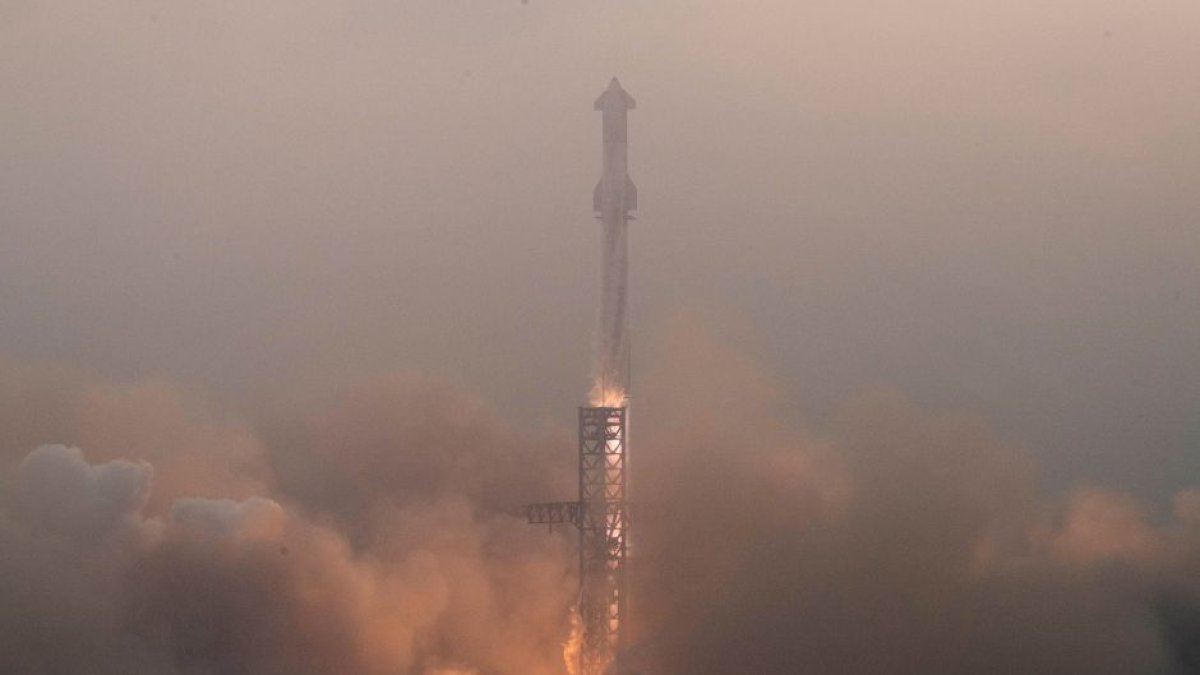SpaceX successfully completes takeoff and landing tests for the largest spacecraft in history
The Starship is composed of a passenger or cargo module and a rocket. It is reusable, measures 397 feet long, and aims to take humanity to the moon and Mars.

(CHANDAN KHANNA / AFP)
The world's largest spacecraft took off this Thursday in Texas. This is the fourth test flight of Space X's Starship, the 397-foot-long space rocket designed by Elon Musk's company and its partners. This Thursday's test was the most successful to date.
The Starship took off early in the morning from Boca Chica, Texas, on the Gulf of Mexico. It is SpaceX's fourth attempt to achieve a safe takeoff, flight and return of the largest spacecraft in history ever put into flight. The previous ones failed miserably. After takeoff and flight to the levels of the lower atmosphere, the ship made a soft landing over the gulf.
The ship landed on a platform planned for this purpose over the sea. This part did not go entirely as planned, since several thermal protections were lost and a spoiler was damaged during the landing, as the company's founder, Elon Musk, was able to report on X.
This spacecraft has a propulsion power equivalent to 16 million pounds of force during the initial takeoff phase. It is the most powerful propulsion ever put into operation for a space rocket. The Starship is designed to be reusable and has the mission of taking crew members to both the moon and Mars. In addition to the rocket, it is made up of a compartmentalized module for passengers or cargo.
The SpaceX test occurs a day after . NASA Administrator Bill Nelson offered his congratulations to SpaceX for the work carried out this Thursday. "We are another step closer to returning humanity to the Moon through #Artemis—then looking onward to Mars," Nelson wrote on X.

























